Roddy Hart and the Lonesome Fire - Interview
by Andy Cassidy
published: 31 / 8 / 2013
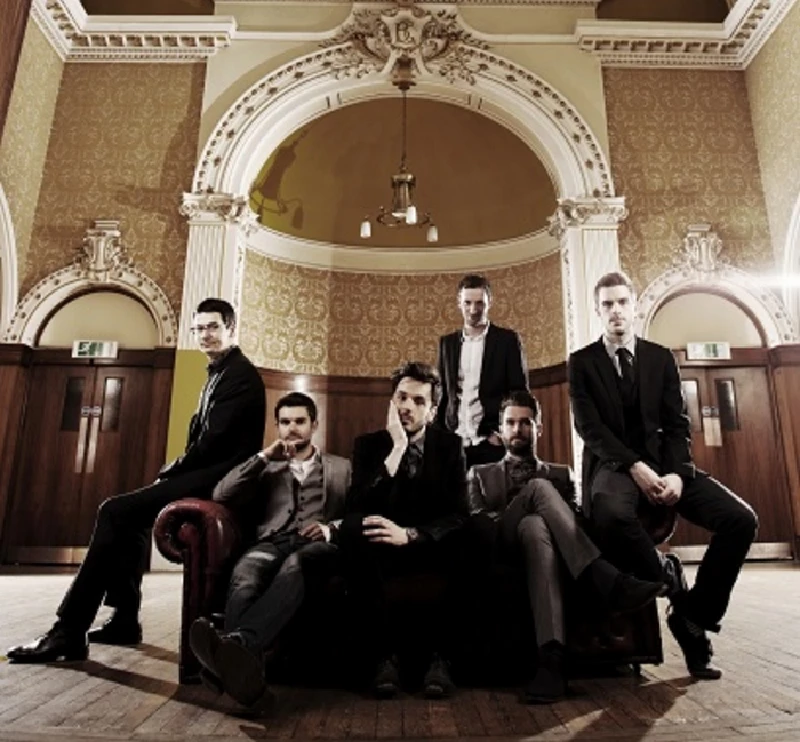
intro
Much acclaimed Glasgow-based singer-songwriter Roddy Hart talks to Andy Cassidy about his new band the Lonesome Fire's debut album, 'Roddy Hart and the Lonesome Fire'
Roddy Hart’s career to date has been pretty impressive by anyone’s standards. He has played with rock and country luminaries such as Kris Kristofferson, Ray LaMontagne, John Prine, Ray Davies and Jeff Beck. He’s performed for royalty. Such is his influence on the Scottish music scene that he hosts his own show on BBC Radio Scotland (and a damned good show it is too). Recently, he has been wowing audiences and critics as frontman of Roddy Hart and the Lonesome Fire. Their eponymous debut album, produced by Danton Supple (Coldplay and Morrissey) was released in early September to critical acclaim. Taking a moment out from his hectic schedule, Roddy discussed with Pennyblackmusic the merits of the album as an art form, the music of his youth and – Yes, really - the recent twerking craze. PB: So, what are you listening to just now? RH: Well, the album is informed by listening to bands like the National, Arcade Fire, Midlake – bands like that. Those are the modern influences, not just for myself, but the six other guys in the band all listen to that as well, so when I was writing this record two years ago I was obsessed by the album ‘The Boxer’ by the National and the follow-up, ‘High Violet’. When we started talking about what we wanted to create, it wasn’t a case of trying to ape any of these people, because I’ve got a huge Springsteen influence in my stuff as well as early Dylan and all these kind of things, so it was really just a case of soaking up all of those influences and pulling them together in terms of what I was trying to write and what the band were trying to add to it from their point of view. It was an interesting experience, because my first three records were all written by myself without other players involved and very much pulling it together when we got to the studio, but this was a very different process. It was more about listening to all these influences and trying to challenge yourself as a writer and as a performer. We were bringing the stuff into the rehearsal studio and really pulling apart the songs as much as we could, so that when you put them back together they are as strong as they possibly can be. PB: Am I right in saying that you spent two years putting the album together? RH: Yeah, absolutely. About three years ago, we took on a rehearsal studio which was the old Franz Ferdinand room in Govan – they had a place in an old part of Govan and we took over the rehearsal space .and that was a massive step for us because there’s such a huge difference between practising once a week for three hours in a commercial studio and having a room where you can leave your gear set up and you can walk into and play whenever you want to. That was a blessing, because what it meant was I could turn up with the songs every week, present them to the band, and we could work on them from the inside out. We really got to know the songs on a much deeper level than you would normally do with songs that you’ve just written, and then you have studio time booked and you’re watching the clock. So. the rehearsal room was an amazing luxury to be able to have that. There is the argument on the other side which says that you should just be spontaneous and go with it, but we really wanted to take care of how we were pulling this album together. There were so many songs that went through so many permutations and variations that we messed around with time signatures and tempos and arrangements, and sometimes you end up back at the start and what it tells you is that your instinct was right or, if it’s not working, you end up with a different version all together. It was a very healthy way for us to do it, I think. PB: You mentioned Dylan and Springsteen. Were they the sort of artists that you grew up with? RH: Yeah, absolutely. My parents’ record collection was full of Dylan and Neil Young, not so much Springsteen, actually. My dad liked Springsteen, but I got into him through a friend when I was eighteen or nineteen – I just became obsessed! He was such an exciting artist to discover. It was actually before – and I’m not trying to claim that I was into him before everyone was into him! – but there seems to be a huge thing for Springsteen at the moment, and when I was into him he was quite uncool: people weren’t talking about him, he was associated with ‘Dancing in the Dark’ and ‘Born in the USA’. I found my way back to his early records and became totally obsessed with the stuff. The problem was, when I was that age, I didn’t have a band to build these kind of songs, to build the big epic, widescreen kind of songs. When I started out, my early records were very acoustic and sparse – you know, stripped back. The first record was quite country, the second one was quite poppy, the third one was very troubadour, singer-songwriter, and it’s only really now, that I’ve pulled the band together over the last few years, that I’ve had the luxury of knowing that we can go into the studio and make them absolutely huge. It’s such an exciting thing to be able to do. PB: Your background isn’t quite the conventional rock and roller. You have a first in Law, is that right? RH: I’ve been trying to delete that fact from Wikipedia! PB: How did your parents feel about you, for want of a better term, abandoning that potential career? RH: They were very cool about it, probably because I’d done the sensible thing of getting through uni and having my degree – that old cliché of having something to fall back on. I was interested in law when I was younger, but music was always my first love. I just wasn’t developed enough to think that I could make a career out of it. It took me a long time. In fact, it’s only really now that I can feel that I’m at the stage where I am a good enough writer and singer to make something of it. In the early days when I was studying, I didn’t have a band and no-one had heard me sing, so I was very much doing the sensible thing, but music was always in my blood and towards the end of uni that’s when I started meeting people who I joined forces with to play in a band. At that stage, I wasn’t the singer, I was just playing guitar in loads of different bands. But, to answer the question, my parents are massively supportive and so is my whole family – that’s brilliant, because you do go through a lot of hard times in music, and when times are tough you sometimes think, “Should I have been a lawyer?” As a musician, you’re taking a real risk. I have so many good pals who are still in law, and have become lawyers, and quite often when we meet up they will tell me that I did the right thing because I took a risk to do something I love doing, Once they got on the conveyor belt…that’s why I chucked it after graduating, because I knew that if I had done a traineeship or a few years qualifying or whatever, once you’re on that conveyor belt you can’t get off and commitments start appearing and you just need the money. PB: Your first album, ‘Home Tapes’, was made on a very limited budget, and basically recorded in your bedroom… RH: There was actually no budget at all! It was just a mate that put that out so that I had something to sell at gigs. PB: And you suddenly jumped from that to supporting Kris Kristofferson. RH: ‘Home Tapes’ was the reason I got the Kris Kristofferson support. They were the demos he heard. ‘Home Tapes’ is very much a collection of demos. It wasn’t a record. The fact that it was released was by-the-by – it was literally just a pressing of albums to sell at gigs and let people hear the songs, but I look back at some of those early recordings and I think, “Oh God!” My voice was completely different, and my songwriting was completely different, but that’s part of the story, isn’t it? I’m so lucky, because that led to me being offered the Kris Kristofferson supports, so I suppose it served its purpose! PB: I’m going to get to the new album in a moment, but I wanted to ask you about your use of Scottish vernacular in your lyrics. You were involved in Homecoming Scotland, writing music for some of Burns’ poetry. It occurred to me that Burns may be an influence on your writing. RH: It’s funny, because when I started, if you trace my work right back, there’s really not much of the Scottish vernacular in it. I was influenced by predominantly American writers, so the terminology I was using was…well, I was always wary of using any Americanisms, but the imagery and the dream-like quality of some of those songs was something that wasn’t suited to a guy from Glasgow. I was soaked in the tapestry and mythology of America, and how the names of American cities and towns sound so much cooler. The Burns thing was interesting, because I wasn’t overly familiar with Burns’ work apart from the well-known stuff that everybody knows, and I was asked to put together new music for older Burns poems that had never been put to music. What that meant was that I had to go online and find loads of unused Burns poems and it was an amazing voyage of discovery for me because I stumbled across all this amazing work and what I found was, and this is no secret, that Burns was the original rock and roller, because he talks about drinking and women and fighting – it was all these things, but in the Scottish tongue and that was what I thought was so interesting. I think more so with this album than with anything else I’ve ever done - You’re right to pick up on it - I have tried to be a bit more Scottish without being cringeworthy Scottish if you know what I mean. I suppose it’s that I’ve never been comfortable singing in my own accent. I find it difficult to do that. Sometimes if you combine that with Scottish terminology it can sound a bit twee. I just can’t pull it off! Some bands can, but I just can’t pull it off. I think pulling in those American influences and adding a bit of Scottish vernacular is becoming a style that I’m more comfortable with. I think that’s something that’s peculiar to the new album. I remember the line that opened it all up for me. There’s a song on the album called ‘Bright Light Fever’ and halfway through that there’s the line, “…scared I’ll get a kicking.” That line just gave me a thrill in a weird sort of way. I had a right giggle at it, and thought,” Great! I’ve got a real Scottish term in there! And I thought it fitted brilliantly! I think that’s an influence from the National. The guy Matt Berninger, he uses all these turns of phrase that you hear in everyday life, but he poeticises them – if that’s even a word! He makes them sound beautiful in a way. That’s what interested me: not trying to be too common, but trying to romanticise Scottish language. PB: So, the new album. It’s your first with the Lonesome Fire. You’re a seven-piece… RH: Yeah, give or take! PB: You’ve recorded in the past with guys from the Trashcan Sinatras, and a whole host of other people, but I get the feeling that this is a more permanent set-up. RH: Yeah, absolutely, this is it. It’s taken a long time to settle on the right combination. It’s all about chemistry. Two of the players, John Martyn and Jeff Martin, they’ve been in the longest with me, so they’ve been in the band for like six or seven years. We used to do loads of gigs acoustically, just the three of us, and then I added Scott MacKay the drummer. He joined the band when he was nineteen or twenty. He was a boy genius drummer! He was amazing, and I thought, “Right, we’re having him!” Then Scott Clarke joined on bass and after that the final two members were Gordon Turner on guitar and most recently a guy called Andy Lucas who is the second piano player, which allows us to split the piano and the organ parts which is amazing. We’re all close as a band, we all get on really well. They all do other things, play in other bands, but, when needed, we all come together. For me, this is the band, and hopefully this is the way we’ll move forward because it’s an exciting band to play in. PB: You funded the album through Pledgemusic. RH: That was through necessity. We were offered the chance to work with Danton Supple who was the producer of Coldplay’s ‘X&Y’ and who had worked with Morrissey. He heard the demos and really loved the stuff, and he wanted to work with us. Working out studio time was going to be the big cost. He was brilliant with us. He did it for the love of it basically. The thing you can’t really get around is the cost of the studio, especially if you want to record a big band sound. We saw the chance, and we knew we had to take the chance to work with somebody so brilliant. We stumbled upon Pledge a couple of years ago, and we thought we’ll give it a go. It was amazing for us, and gave us a lot of confidence that we were doing the right thing. It’s a great platform. It cuts out the middle man and you just have a direct communication with the fans. It was interesting, because not only do you get people who are really supportive, but you also get a dialogue in terms of when the album is coming out and what’s happening with it and you end up being very honest with what’s happening with the release date and who’s putting it out and I think that’s a healthy thing. I think you have to be careful. You can’t do it too many times, going cap in hand to the fans. I don’t want to feel that I’m asking too much of people. Having said that, everyone has been so lovely and so supportive that I don’t see why we wouldn’t do it again. PB: It’s interesting that you used a relatively unconventional means of funding. I found a couple of your records on Spotify, and I wondered, what with the changes in funding and developments like iTunes and Spotify how do you see the future of the album? RH: I truly, truly hope and pray that the art-form of the album isn’t lost. I don’t know if that’s just the generation I was brought up in, and my parents were brought up in – we were just so used to hearing albums. There’s a beauty in the art of sequencing, putting tracks one to twelve and thinking about the whole flow, and I just don’t want that to be lost. I don’t think it will be, I think artists will drive that, but you get that sound-bite element of the single generation where they’re just picking and choosing singles, and that’s fine, because it means that artists have to try harder to make sure it’s “all killer, no filler.” As long as the art-form of the album stays, I think that is a healthy thing. In terms of Spotify, I think that model will have to change slightly. I think that more and more people are realising that you have to buy music again which is great, and Spotify seems to be the sort of halfway house between iTunes and the Pirate Bay. The artists aren’t really being rewarded. They receive so little, and it’s crazy that someone like Adele, who is selling millions and millions of records, is getting a few grand from Spotify. The downside is that artists will never stop creating, but they will stop using these platforms to get their music heard, because they’re just not getting any money from it. Overall, though, Spotify is a positive thing, because although there’s not that much money, there is still some money coming through, and it allows people to get to know your stuff and then come and see you live which is where the real money is coming from. The internet is in its adolescence, and the younger generation have been brought up in the environment where they think that they can just take music [illegally]. The other side of it is, I remember when I was a student, being seventeen and putting things on tape, copying CDs from friends – is it just a young, skint person’s way of finding music? And these are the people who come to gigs, so I don’t know what the answer is. Maybe we’re overanalysing it. The one thing I hope is that people are still listening on decent stereo systems, even if it’s something like these Sonar systems or the Bose systems that are wireless. Just the thought of spending thousands of pounds, going into a studio and making an album that sounds brilliant and then for people just to listen on their laptops – that’s the one thing I hope: that people are still consuming it properly. PB: So what’s next? RH: Well, we’ve got a couple of big shows coming up. We’ve got The Hydro in Glasgow in October with Glasvegas and the Proclaimers. That’s the big one. It’s the weirdest triple bill, but we’re looking forward to it! It’s going to be a big gala night – I think it’s going to be really special, actually. We’ve then got a tour of Scottish dates in November. The band is the future for me, and that’s what I’m keen to push forward - more dates next year, but getting back into the studio and following up this album quite swiftly, I would hope. Hopefully, we’ll get recording again next year. That’s the plan. PB: And with regards to the upcoming tour, have you been working on your twerking? RH: Do you know what? I’d never heard this phrase until everyone started talking about Miley Cyrus and then I looked it up, but, yeah, there’s going to be some heavy twerking going on, no doubt about that! There’s seven of us, so there’s a lot of twerking to be done! PB: Thank you.
Band Links:-
https://www.facebook.com/RoddyHartandtheLonesomeFire/https://twitter.com/roddyhart
Picture Gallery:-
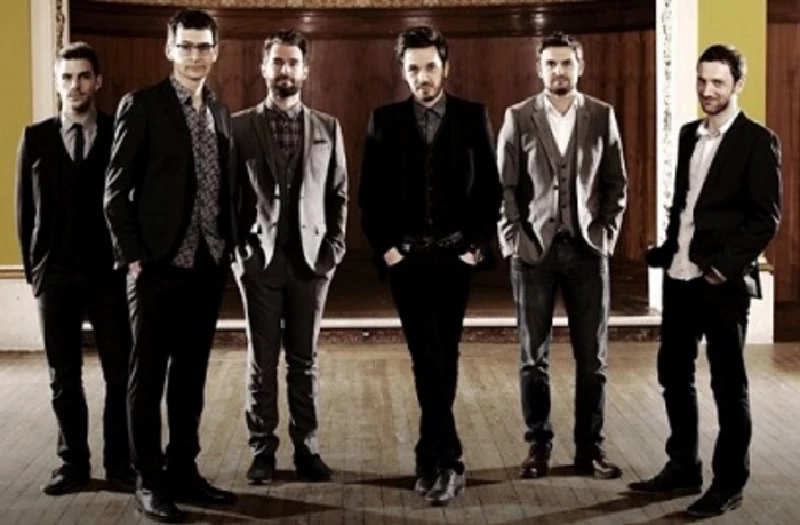
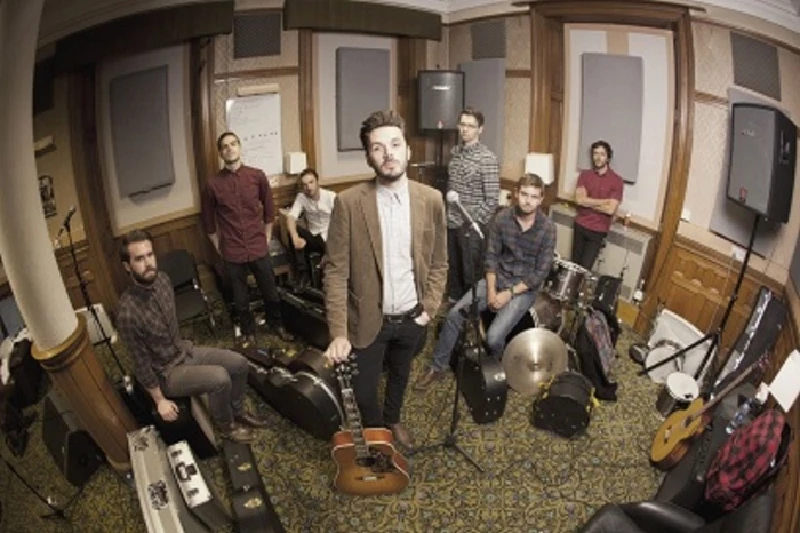
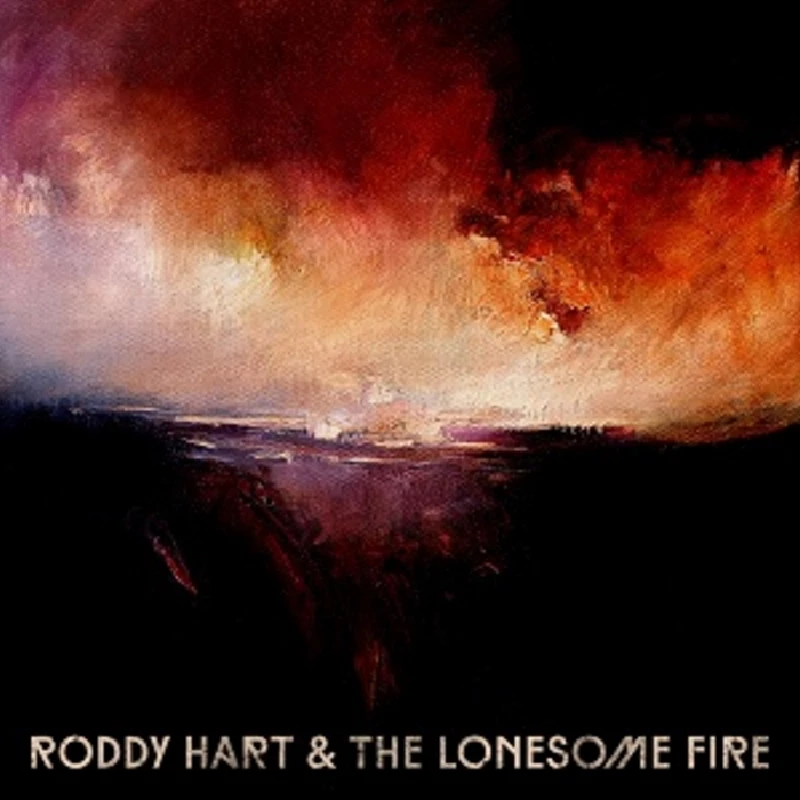
reviews |
|
Roddy Hart and the Lonesome Fire (2013) |
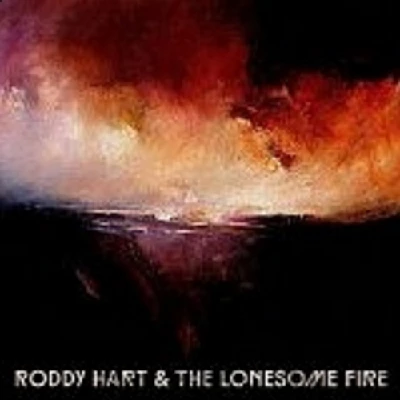
|
| Haunting and anthemic debut album from Glasgow-based singer-songwriter Roddy Hart and his band the Lonesome Fire, which draws comparisons with the very best of early U2 and Simple Minds |
most viewed articles
current edition
Carl Ewens - David Bowie 1964 to 1982 On Track: Every Album, Every SongArmory Show - Interview with Richard Jobson
Bathers - Photoscapes 1
Colin Blunstone - Thalia Hall, Chicago, 16/7/2025
Visor Fest - Valencia, Spain, 26/9/2025...27/9/2025
Billie Eilish - O2 Arena, London, 10/7/2025
John McKay - Interview
Robert Forster - Interview
Loft - Interview
Sir Tim Rice - Interview
previous editions
Heavenly - P.U.N.K. Girl EPManic Street Preachers - (Gig of a Lifetime) Millennium Stadium, Cardiff, December 1999
Oasis - Oasis, Earl's Court, London, 1995
Trudie Myerscough-Harris - Interview
Beautiful South - Ten Songs That Made Me Love...
Paul Clerehugh - Interview
Pixies - Ten Songs That Made Me Love...
Prolapse - Interview
Simon Heavisides - Destiny Stopped Screaming: The Life and Times of Adrian Borland
Doris Brendel - Interview
most viewed reviews
current edition
Amy Macdonald - Is This What You've Been Waiting For?Sick Man of Europe - The Sick Man of Europe
Phew, Erika Kobayashi,, Dieter Moebius - Radium Girls
Alice Cooper - The Revenge of Alice Cooper
Davey Woodward - Mumbo in the Jumbo
Lucy Spraggan - Other Sides of the Moon
Blueboy - 2
Cynthia Erivo - I Forgive You
Vinny Peculiar - Things Too Long Left Unsaid
Philip Jeays - Victoria
Pennyblackmusic Regular Contributors
Adrian Janes
Amanda J. Window
Andrew Twambley
Anthony Dhanendran
Benjamin Howarth
Cila Warncke
Daniel Cressey
Darren Aston
Dastardly
Dave Goodwin
Denzil Watson
Dominic B. Simpson
Eoghan Lyng
Fiona Hutchings
Harry Sherriff
Helen Tipping
Jamie Rowland
John Clarkson
Julie Cruickshank
Kimberly Bright
Lisa Torem
Maarten Schiethart